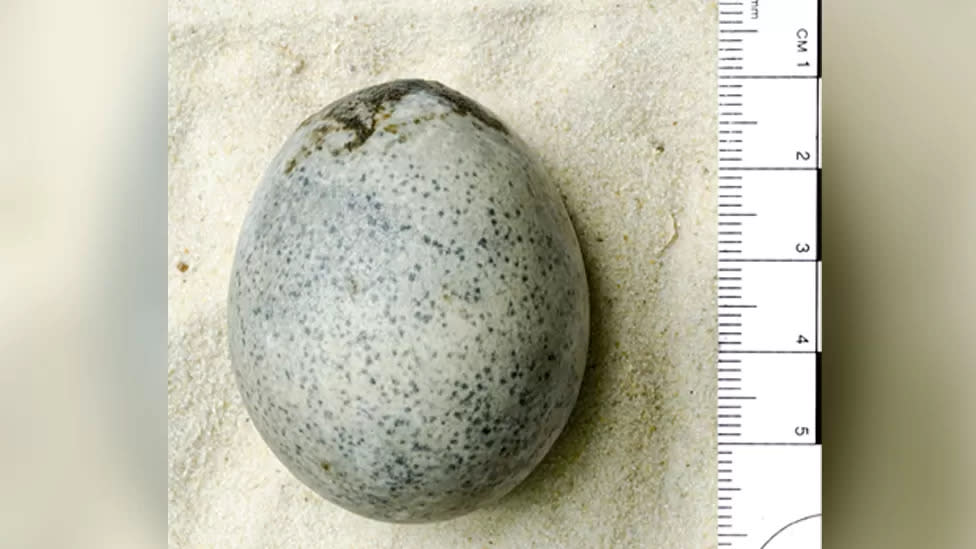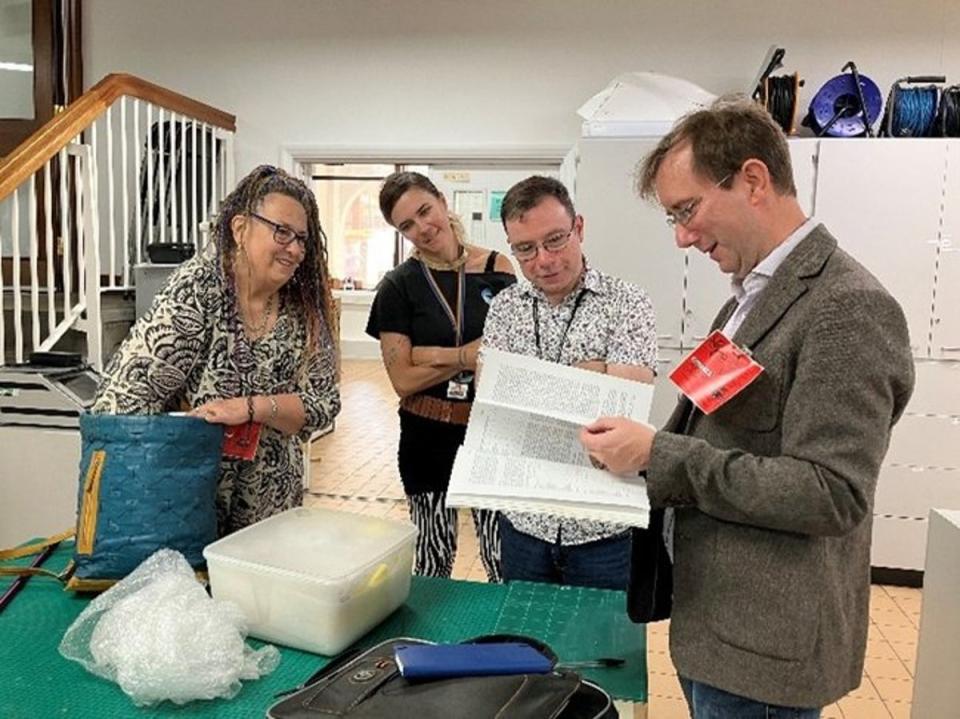Scientists discover ancient egg dating back 1,700 years still has liquid inside

An intact chicken egg thought to be around 1,700 years old could be the only one of its kind after scientists found it still had liquid inside.
The egg was discovered during a dig of a site near Aylesbury, between 2007 and 2016 alongside others, which were broken during the course of excavation.
Now a scan has found that the remaining egg still contains a white and yolk - meaning it could be the only intact egg from that period.
Speaking to the Independent, Edward Biddulph, senior project manager at Oxford Archaeology who oversaw the excavation, said: "We were absolutely blown away when we saw the contents in there, as we might have expected them to have leached out."

A micro-CT scan, conducted by conservationist Dana Goodburn-Brown, confirmed that it is still full of liquid and an air bubble.
The egg was found at a site called Berryfields, containing a large waterlogged Roman pit, which experts think may have been used as a kind of wishing well.
The egg has since been taken to the Natural History Museum in Kensington, where Douglas Russell, the senior curator of the museum’s birds, eggs and nests collection was consulted about how to conserve the egg.
Mr Biddulph told the publication: “As we found out when we visited the Natural History Museum, [it] appears to be the oldest known example in the world."
He added that it was "a bit daunting walking around London with a 2,000-year-old egg.
"It was a bit hairy on the Tube - although it was well protected - it’s not like I was carrying it around in my pocket,” he said.
The egg is currently being housed at Discover Bucks Museum in Aylesbury as experts explore ways to extract the liquid inside without breaking the delicate shell.
Plans are now underway to consider next steps, with archaeologists saying they want to secure the long-term future of the egg and its research potential.


